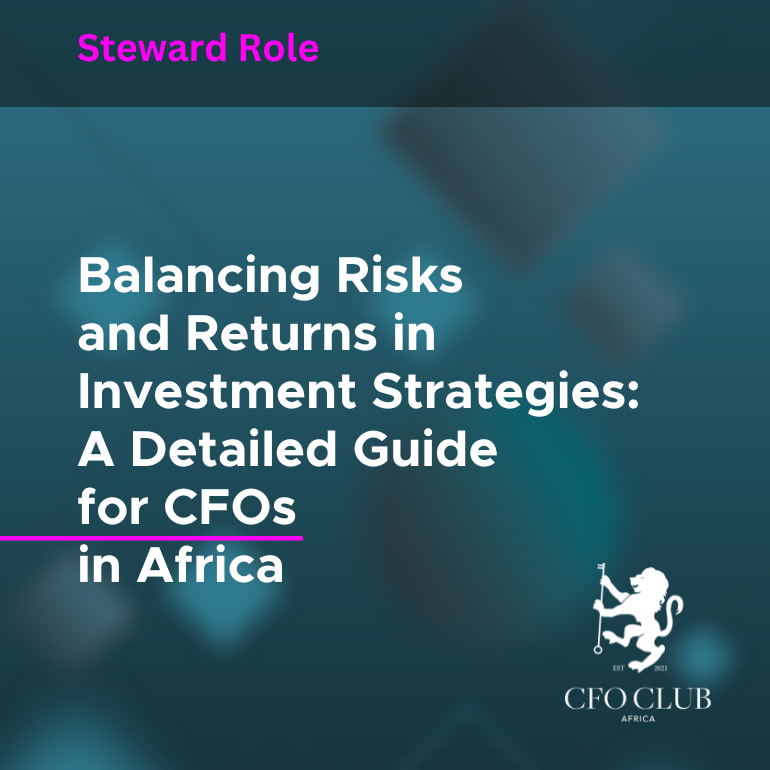Balancing Risks and Returns in Investment Strategies: A Detailed Guide for CFOs in Africa
For CFOs operating within the diverse economic landscapes of Africa, making informed investment decisions is crucial. This guide offers a straightforward approach to balancing potential gains with risks, ensuring financial stability and growth for your organization.
Understanding Risk and Return
Investment decisions are all about balancing potential rewards against possible risks. Higher returns are usually associated with higher risks. As a CFO, your task is to manage this balance effectively to achieve your company’s financial objectives.
Detailed Steps to Manage Risks and Returns
- Define Clear Investment Goals: Start by outlining what you aim to achieve through your investments. Goals can range from ensuring operational liquidity and preserving capital to funding aggressive growth. Each goal has its inherent risk level, which should guide your investment decisions.
- Stay Updated on Market Trends: Keeping abreast of both global and regional market trends is essential. This includes understanding economic indicators, regulatory changes, and market volatility. For example, a CFO in Africa needs to monitor local events that could impact currency values or investment climates, such as political instability or changes in trade policies.
- Implement Diversification: Diversifying your investment portfolio across different asset classes (stocks, bonds, real estate) and regions can help mitigate risks. For instance, when one market or sector experiences a downturn, diversified investments in other areas can offset losses.
- Conduct Regular Investment Reviews: Constantly review your investment portfolio to ensure it aligns with your strategic goals and market conditions. This might involve rebalancing the portfolio to adjust the risk level or to take advantage of emerging opportunities.
- Leverage Financial Tools for Risk Management: Use derivatives like options and futures to hedge against risks. These tools can be crucial for protecting your investments against significant fluctuations, especially in volatile markets typical of many African economies.
- Maintain Flexibility in Strategy: The ability to quickly adapt your investment strategy in response to market changes is a valuable asset. Encourage a culture of agility and continuous learning within your finance team to enhance responsiveness.
Expanded Practical Examples
Example 1:
Investment Strategy in a Manufacturing Company Suppose you’re the CFO of a manufacturing company in Kenya looking to invest surplus cash. If your company is pursuing growth and can tolerate moderate risk, you might consider investing in high-growth sectors like technology. On the other hand, if upcoming expansions require stable funding, safer investments in government bonds or fixed deposits would be advisable. This decision should be supported by a thorough analysis of market trends and potential returns from each sector.
Example 2:
Retail Chain Investment Diversification Imagine you’re the CFO of a retail chain operating across Nigeria, Ghana, and Côte d’Ivoire. To protect your investments from regional economic fluctuations, you diversify by investing in a mix of local real estate, global equity funds, and commodities. For instance, real estate in Ghana might offer stability, global equity funds could provide high returns, and commodities like gold serve as a hedge against inflation. This strategy not only balances risk across different assets but also taps into various growth potentials.
Conclusion
For CFOs in Africa, effective investment management involves more than just selecting assets; it requires a strategic approach to balancing risk and return, continuous monitoring of investments, and the flexibility to adapt strategies as needed. By employing these detailed steps and understanding specific examples, you can guide your organization towards sustained financial health and growth amidst the complexities of African markets.

